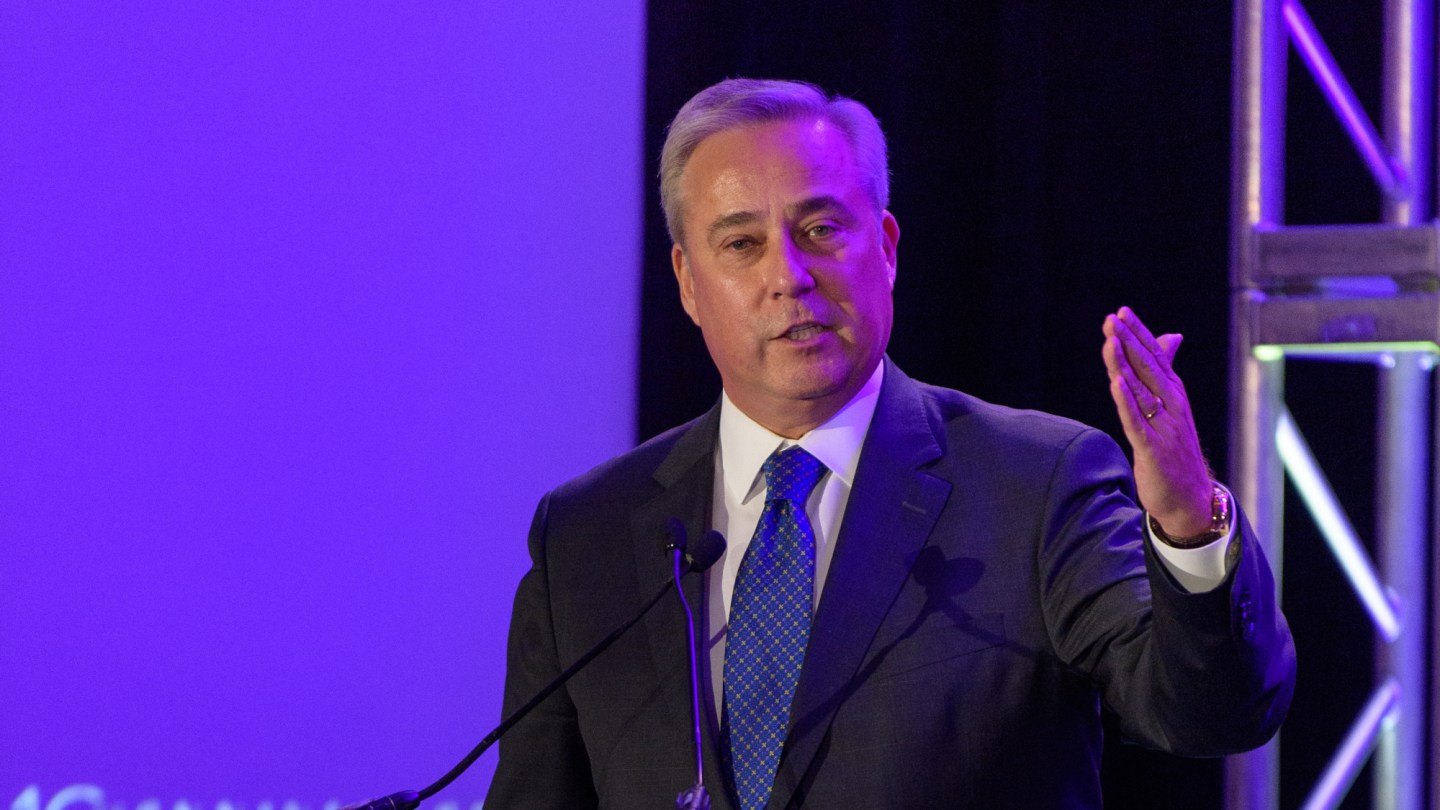The local TV station giant Nexstar has officially asked the FCC to approve the transfer of broadcast licenses controlled by Tegna, a key part of its proposed $6.2 billion takeover that would make it by far the largest owner of TV stations in the U.S.
The FCC is currently going through a rulemaking process that could see it raise the cap on how many stations a company can own, but Nexstar has asked for a waiver, a move that could help speed up the process.
In a statement Tuesday, Nexstar CEO Perry Sook framed the deal as being important to the future of news.
“To be clear, in an age of disinformation and political agendas, we are the anti-fake news,” Sook said. “Our news is delivered by trusted, familiar voices — journalists who live in the community — not a chatbot or social media influencers. And yet, we are prohibited from broadcasting trusted local news and programming to hundreds of communities across the country because of antiquated regulatory constraints. In an era where political discourse has turned increasingly polarized and violent, our democracy requires that Americans have easy access to reliable fact-based journalism and community forums to debate the issues of the day safely and respectfully.
“Nexstar’s acquisition of TEGNA will provide us with the scale necessary for local journalism to thrive amidst a media landscape that is dominated by Big Tech and the legacy media companies, enabling us to continue not only investing in high-quality journalism and local news, but in serving our local communities in the best possible way,” Sook continued.
Nexstar and Tegna are framing the deal as a dire one, with competition from Big Tech companies like Google and Amazon, who are hoovering up ad dollars, as well as from traditional media companies who have global ambitions of their own. The companies frame the current moment as a “crisis” warranting immediate action by the FCC.
“Steep competition from tech platforms has engendered a crisis even for broadcasters considered to be well-positioned,” Nexstar writes in its filing. “The Transaction will provide the combined Nexstar with economies of scale and the reach needed to successfully compete with giants like Alphabet (Google, YouTube, YouTubeTV), Amazon (Amazon Ads, Prime Video, Twitch), Apple (AppleTV), Comcast (Peacock), Disney (Disney+, Hulu, ESPN, Fubo), Meta (Facebook, Instagram, WhatsApp), Netflix, Paramount (Paramount+, Pluto TV), TikTok, and Warner Bros. Discovery (HBO Max), all of which are unshackled in their ability to reach a national audience. These conglomerates increasingly siphon revenue away from broadcast stations for the benefit of their national and global digital platforms and affiliated streaming services, rendering Nexstar and TEGNA unable to compete and maintain the same level of investment in the essential local content upon which their communities rely.”
“Evaluation of the Transaction should not be skewed by false narratives whose foundation relies on wishful thinking about yesteryear, or the misconception that local broadcast television today is a business in which it is commonplace for individually-owned stations to successfully compete and derive the wherewithal to invest in diverse, local programming and innovation,” the filing continues. “A determination as to whether or not the public interest is served by grant of the Applications should be based in reality—Nexstar and TEGNA must combine if their local stations’ critical role in our nation’s information ecosystem is to be preserved. Time is of the essence.”

